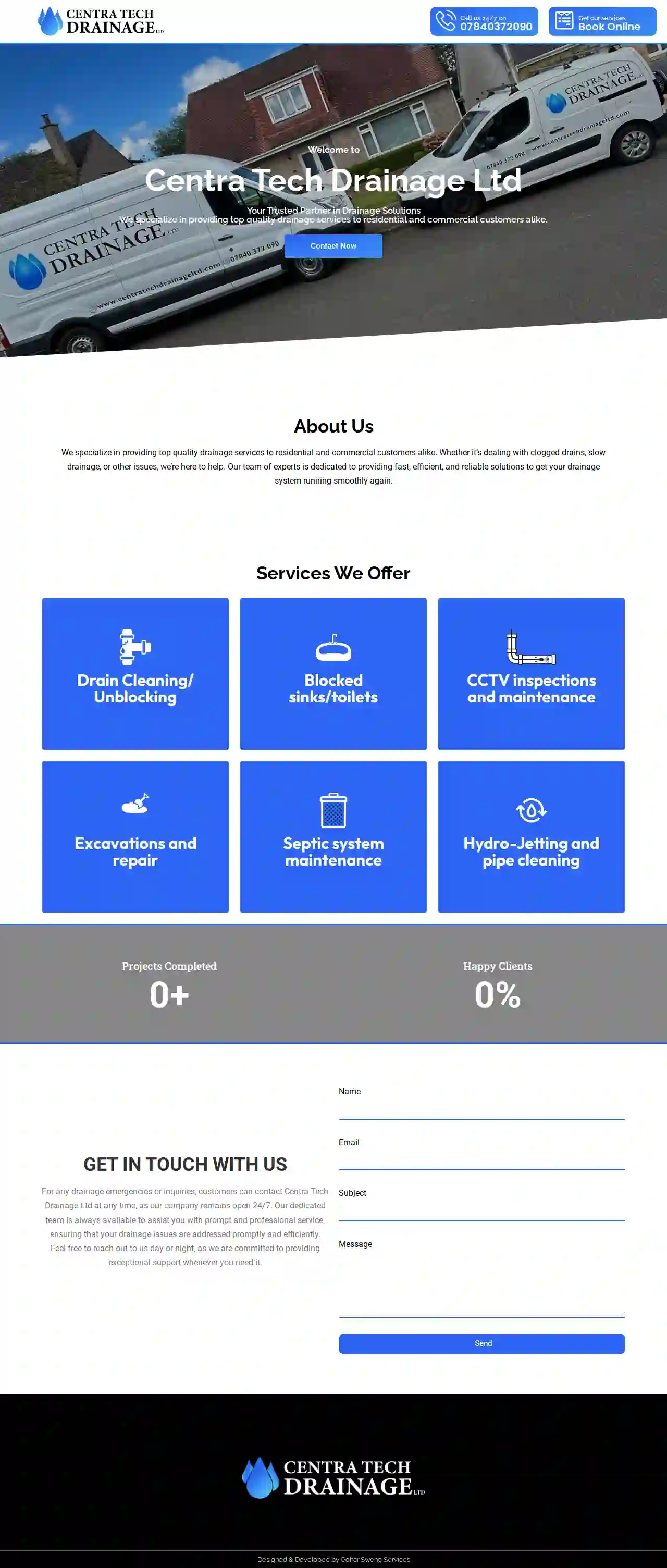Demolition Contractors Hamilton
Top 10 Structure Demolition in Hamilton
Get multiple Demolition Company Near Me quotes for your project today! Compare profiles, reviews, accreditations, portfolio, etc... and choose the best service.

Centra Tech Drainage LTD
59 reviewsHamilton, GBWelcome to Centra Tech Drainage Ltd Your Trusted Partner in Drainage Solutions We specialize in providing top quality drainage services to residential and commercial customers alike. Whether it’s dealing with clogged drains, slow drainage, or other issues, we’re here to help. Our team of experts is dedicated to providing fast, efficient, and reliable solutions to get your drainage system running smoothly again.
- Services
- Why Us?
- Gallery
Get Quote
Burgh Resin Specialists
1Hamilton, GBScotland's Epoxy Resin Surfacing Experts Burgh Resin Specialists are resin surface professionals providing resin bound driveways, rubber crumb flooring and Savoro flooring across Edinburgh, Glasgow, Falkirk, Fife and The Lothians. Working only with premium quality resins produced from traceable UK materials, we are experts in installing resin surfacing that outperforms any others on the market. We are Burgh Resin, specialist resin surfacing suppliers and installers working across Edinburgh, Glasgow, Falkirk, Fife and The Lothians, providing the strongest driveways, external and internal resin surfacing in the UK.
- Services
- Why Us?
- Gallery
Get Quote
Over 11,537+ Excavation Companies registered
Our excavation experts operate in Hamilton & surrounding areas!
ExcavationHQ has curated and vetted Top Excavation Businesses near Hamilton. Find the most trustworthy business today.
Frequently Asked Questions About Demolition Contractors
- Experience: Look for companies with a proven track record and years of experience in the demolition industry.
- Licensing and Insurance: Ensure the contractor is properly licensed to operate in your area and carries adequate insurance to protect you from liability.
- Safety Record: Inquire about their safety protocols and accident history. A reputable contractor prioritizes safety.
- References and Reviews: Ask for references from past clients and check online reviews to gauge their reputation and customer satisfaction.
- Professionalism: Choose a company that communicates clearly, provides detailed estimates, and has a courteous and responsive team.
- Permits and Regulations: Obtain all necessary demolition permits and comply with local building codes and environmental regulations.
- Contracts: Have a clear and comprehensive contract with the demolition contractor outlining the scope of work, payment terms, and liabilities.
- Environmental Laws: Comply with environmental laws regarding hazardous material removal, waste disposal, and pollution control.
- Neighboring Property Rights: Respect neighboring property rights and take measures to prevent damage or disruption to adjacent properties.
- Worker Safety: Adhere to worker safety regulations and provide a safe working environment for demolition crews.
- Size and Type of Structure: The method should be suitable for the structure's size, height, and construction materials.
- Site Location and Accessibility: The method should be feasible given the site's location, surrounding buildings, and access constraints.
- Environmental Considerations: Prioritize methods that minimize environmental impact, such as deconstruction or selective demolition if feasible.
- Budget: Different demolition methods have varying costs, so choose one that fits your budget.
- Safety: Prioritize methods that ensure worker safety and minimize risks to surrounding areas.
How long does a demolition project take?
How do I find a reputable demolition contractor?
What are the legal considerations for demolition projects?
How do I choose the right demolition method for my project?
How long does a demolition project take?
How do I find a reputable demolition contractor?
- Experience: Look for companies with a proven track record and years of experience in the demolition industry.
- Licensing and Insurance: Ensure the contractor is properly licensed to operate in your area and carries adequate insurance to protect you from liability.
- Safety Record: Inquire about their safety protocols and accident history. A reputable contractor prioritizes safety.
- References and Reviews: Ask for references from past clients and check online reviews to gauge their reputation and customer satisfaction.
- Professionalism: Choose a company that communicates clearly, provides detailed estimates, and has a courteous and responsive team.
What are the legal considerations for demolition projects?
- Permits and Regulations: Obtain all necessary demolition permits and comply with local building codes and environmental regulations.
- Contracts: Have a clear and comprehensive contract with the demolition contractor outlining the scope of work, payment terms, and liabilities.
- Environmental Laws: Comply with environmental laws regarding hazardous material removal, waste disposal, and pollution control.
- Neighboring Property Rights: Respect neighboring property rights and take measures to prevent damage or disruption to adjacent properties.
- Worker Safety: Adhere to worker safety regulations and provide a safe working environment for demolition crews.
How do I choose the right demolition method for my project?
- Size and Type of Structure: The method should be suitable for the structure's size, height, and construction materials.
- Site Location and Accessibility: The method should be feasible given the site's location, surrounding buildings, and access constraints.
- Environmental Considerations: Prioritize methods that minimize environmental impact, such as deconstruction or selective demolition if feasible.
- Budget: Different demolition methods have varying costs, so choose one that fits your budget.
- Safety: Prioritize methods that ensure worker safety and minimize risks to surrounding areas.